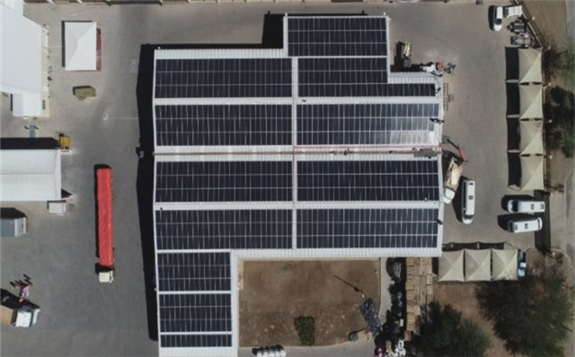Montego Pet Nutrition has reported a 300-tonne reduction in CO2 emissions after installing solar panels.

The pet food company installed a dedicated solar energy plant at its production facility in Graaff-Reinet, South Africa last year at a cost of R22 million ($1.34 million). The company completed work on its 843kWp solar panel system, spanning 4,580 square metres of rooftop space, in May 2019.
According to Montego Pet Nutrition marketing manager Wilfred Cawood this reduction is equivalent to planting approximately 9,000 trees to offset carbon emissions.
The installation is part of the company’s drive to becoming a low-carbon company with a commitment to sustaining the environment.
“We take our responsibility of establishing renewable energy sources in our business seriously, particularly as this relates to the local context and the challenging state of SA’s utility infrastructure,” said Cawood.
Join the Corporate Power Purchase Agreement webinar to find out more about how companies are driving carbon emission cuts.
The nine-month solar project followed closely on the heels of a R70 million ($4.25 million) factory upgrade implemented in 2018 to meet local and international demand for premium quality pet food.
Montego installed equipment to enhance the efficiency of their production process, boosting overall production by 30%, and expanded their range to grow their global distribution footprint.
“The boost in production and demand for Montego’s pet food and treats meant that a move to renewable energy sources was crucial for us. Not only do we believe it to be our responsibility to sustaining the environment, but solar energy also presented attractive cost efficiencies from a business standpoint,” adds Cawood.
Solar power driving SA’s economic recovery and emissions cut
The move to clean energy sources is a growing priority in South Africa, not only because of the country’s costly dependence on coal.
The introduction of a carbon tax in 2019 means a company could potentially incur a tax, depending on the applicable threshold, thanks to combustion emission, process emission and/or fugitive emissions.
Also, in light of the damaging impact of the COVID-19 pandemic on the South African economy, a recently released report by the South African National Energy Association (SANEA) asserts that clean energy could help to drive the country’s economic recovery.
“Solar energy presents a viable solution to the growing energy demand and strain on South Africa power grid,” says Cawood. “South African businesses have a role to play in facilitating and innovating clean energy solutions, and developing the necessary infrastructure within communities.”